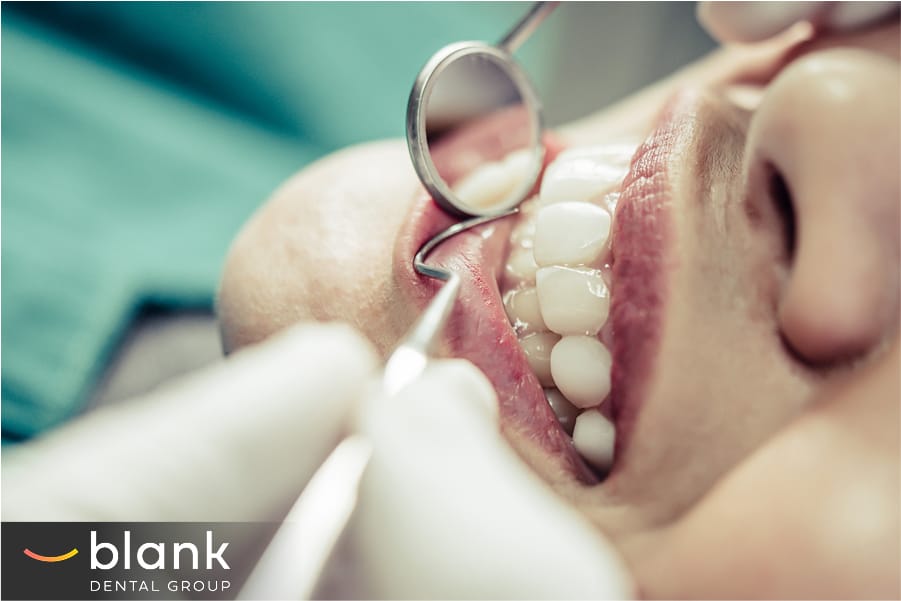Have you ever wondered how long dental implants really last? If you’re considering this popular tooth replacement option, you’re probably curious about the durability. After all, dental implant surgery represents a significant investment in your smile and overall health.
The good news? Dental implants are designed to be a permanent solution for missing teeth. With proper care, they can serve you well for decades—possibly even a lifetime.

What Exactly Are Dental Implants?
Before diving into longevity, let’s understand what we’re talking about. Dental implants are a revolutionary way to replace missing teeth with something that looks, feels, and functions like natural teeth.
A complete dental implant system has three main parts. First, there’s the implant itself—a small titanium screw inserted directly into your jawbone, functioning as an artificial tooth root. Next is the abutment—a connector piece that attaches to the implant. Finally, there’s the crown—the visible part that resembles your natural tooth.
What makes dental implants special is a process called osseointegration. This is when your jawbone actually grows around and bonds with the titanium implant, creating a stable base for your new tooth. This biological integration is what gives dental implants their incredible strength and durability.

How Long Do Dental Implants Last?
When it comes to the lifespan of dental implants, the numbers are impressive. Studies consistently show success rates of 95-98% over a 10-year period. But many dental implants last much longer!
Generally speaking, the implant portion (the titanium screw in your jawbone) can last a lifetime with proper care. The crown that sits on top typically lasts about 10-15 years before needing replacement due to normal wear and tear.
Compare this to other tooth replacement options like dental bridges, which typically last 5-15 years, or traditional dentures that often need replacement every 5-8 years. This makes dental implants not just a health decision, but a smart, long-term investment. While the initial cost may be higher, the extended lifespan of dental implants often makes them more cost-effective over time.
Factors Affecting How Long Implants Last
The longevity of your dental implants isn’t guaranteed—it depends on several factors that you should be aware of.
Your Oral Hygiene Routine
Good oral hygiene plays a crucial role in the lifespan of dental implants. Just like natural teeth, implants need proper care to prevent problems. Brush twice daily with a soft-bristled toothbrush and floss daily around your implant.
Many dentists also recommend using an antimicrobial mouthwash to help keep the area clean. Poor oral hygiene can lead to gum disease and peri-implant disease, which are leading causes of implant failure.
Bone Health and Density
The foundation of a successful implant is having enough bone in your jaw to support it. Factors affecting your bone health include:
- Age (older adults may have less bone density)
- How long the tooth has been missing (jawbone begins to deteriorate after tooth loss)
- Overall health and nutrition
- Medical conditions affecting bone metabolism
Sometimes, patients need a bone graft to create enough jawbone for successful implant placement.
Lifestyle Choices That Impact Implant Success
What you do day-to-day significantly affects your dental implants. Smoking reduces blood flow to the gums and jawbone, slowing healing and increasing the risk of implant failure. Teeth grinding puts excessive pressure on implants and can cause tiny movements that disrupt osseointegration. Additionally, chewing hard candy, ice, or using teeth as tools can damage implant crowns and compromise their longevity.
Medical Factors to Consider
Certain health conditions and medications can impact the success and longevity of dental implants. Uncontrolled diabetes can slow healing and increase infection risk. Autoimmune disorders may interfere with the body’s ability to integrate the implant. Some medications affect bone healing, potentially compromising implant stability. Cancer treatments, particularly radiation to the jaw area, can significantly alter bone health and affect osseointegration.
Surgical Expertise Matters
The experience of your implant surgeon plays a significant role in long-term success. An inexperienced surgeon may place implants incorrectly or miss important anatomical considerations. Always look for a dentist with specific training and experience in implant dentistry.
Warning Signs of Implant Issues
Even with the best care, problems can develop. Being aware of early warning signs can help prevent implant failure.
These warning signs include:
- Pain or discomfort around the implant area
- Gum recession or visible implant threads
- Difficulty chewing or biting
- Gum inflammation or bleeding
- Loose-feeling implant
If you notice any of these symptoms, contact your dentist right away. Early intervention can often save an implant that’s beginning to fail.

How to Make Your Dental Implants Last Longer
Want to maximize the lifespan of your dental implants? Follow these practical steps.
Daily Maintenance Is Essential
Caring for your implants isn’t complicated, but it is necessary. Use a soft toothbrush—electric brushes are great for implants as they provide thorough cleaning without excessive pressure. Clean between teeth and around implants with floss or interdental brushes to remove bacteria from hard-to-reach places.
Many dentists also recommend water flossers for cleaning around implants, especially for patients with limited dexterity. Additionally, use non-abrasive toothpaste to avoid scratching the crown and compromising its appearance.
Regular Professional Care
Your dentist remains your partner in implant care. Maintain regular check-ups, typically every 6 months, to ensure any potential issues are caught early. Get professional cleanings to remove tartar from hard-to-reach places, which helps prevent gum inflammation around implants. Have periodic X-rays to check bone levels around implants, as bone loss can be detected before symptoms appear. And always discuss any concerns promptly with your dental team rather than waiting until your next scheduled appointment.
Protect Your Investment
Simple habits can help protect your dental implants. If you grind your teeth, wear a nightguard to prevent excess force that can damage both the implant and crown. During sports or high-impact activities, use a mouthguard to protect against trauma. Avoid using teeth as tools for opening packages or biting nails, as this creates unnatural pressure. Be cautious with very sticky or hard foods that might damage the crown or put stress on the implant.
Mini Dental Implants vs. Standard Implants
You might have heard about mini dental implants as an alternative option. These smaller implants have their place in dentistry, particularly for stabilizing dentures or in cases with limited jawbone. However, they generally don’t have the same long-term track record as standard implants for replacing individual teeth.
Standard dental implants have been extensively studied in systematic reviews, showing excellent long-term success rates when replacing one or more teeth. While mini implants may be appropriate in certain situations, discuss with your dentist whether standard implants might offer better longevity for your specific needs.
The Bottom Line on Dental Implant Lifespan
Dental implants are the closest thing to having your natural teeth back. With success rates above 95% and the potential to last decades, they offer an excellent solution for tooth loss.
The key takeaway? The lifespan of dental implants largely depends on you. With good oral hygiene, regular dental visits, and healthy lifestyle choices, your implants have the best chance of serving you well for many years—possibly even a lifetime.
If you’re considering dental implants or already have them, remember that this remarkable tooth replacement option requires a partnership between you and your dental team. Together, you can ensure your new smile lasts as long as possible.
Have you been thinking about dental implants? Or do you have implants that you want to make sure last? Talk to your dentist about your specific situation and how to maximize the lifespan of your dental implants.






